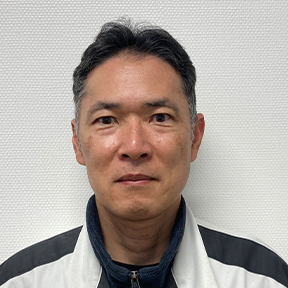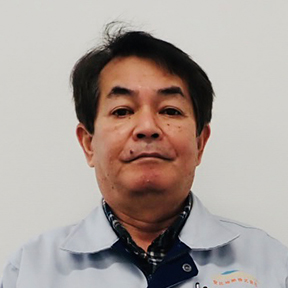2024.04.18

Undaunted by Heavy Snowfall! Mitsubishi Materials Corporation's Appi Geothermal Power Plant Begins Operation

The Appi area of Hachimantai City is in an extremely snowy region of northern Iwate
Prefecture. A nearby ski resort is approximately 1,130 meters above sea level, and the
snowfall there reaches 4 to 5 meters.
The Appi geothermal power plant is built on the slope
of a mountain. It has been in operation since March 2024.
Mitsubishi Materials Corporation and Mitsubishi Gas Chemical Company, Inc. jointly
established Appi Geothermal Energy Corporation in 2015 and built the power plant to reduce
CO2 emissions and ensure stable power supply. Yuko Kanno became President
of Appi Geothermal
Energy in April 2022 after working for Mitsubishi Materials in nuclear power-related
businesses. Kaname Ohata, who has been involved in the project since 2018, works in the
Production Engineering Office, Technology Management Department, Renewable Energy Business
Division of the Strategic Headquarters. They told us about their passion for the power plant
and geothermal power generation.
In the face of snow-blocked roads, they plowed the snow themselves to reach the plant.
Geothermal power generation involves drilling down deeply in geothermal areas where volcanoes, natural fumaroles, hot springs, and altered rocks exist and extracting steam from geothermal reservoirs to rotate turbines to generate electricity. Because its energy source exists depths below the earth's surface, there is no fear of depletion as with fossil fuels, and almost no CO2 is emitted. The plant is expected to provide a stable power supply day and night for an extended period of time.

Kanno explains the background that led to the construction of
the Appi Geothermal Power Plant:
"From 2000 to 2003, the New Energy and Industrial Technology Development Organization (NEDO)
conducted a geothermal development promotion survey, which confirmed the promising
geothermal resources in the Hachimantai area. Mitsubishi Materials Corporation and
Mitsubishi Gas Chemical Company, Inc. conducted additional studies to determine a geothermal
power project's feasibility, including profitability. In 2015, the two companies established
a joint venture, Appi Geothermal Energy Corporation, and conducted an environmental impact
assessment. In January 2018, the government issued a notification of confirmation.
Subsequently, with Electric Power Development Co., Ltd. (J-POWER), we commercialized the
project. Construction work began in 2019, and we were able to start the plant’s operation in
March 2024."
From the initial survey, it took 20 years. There were countless hardships, including snow,
which was a particular headache for on-site personnel. As mentioned earlier, the Appi
Geothermal Power Plant is in an exceptionally snowy area; the snow could accumulate to the
point where roads were impassable only an hour after the snowplows passed. Some roads are
closed for the winter. From the time construction started to the period of trial run, the
struggle against snow was ceaseless.
"The power plant is 14 km beyond where the winter road closure starts," Ohata told us. "In
2022, we brought in a large snowplow and installed snow fences to prevent whiteouts. In
addition, we have increased the number of snow removal crews this winter in preparation for
the start of plant operation. We secured access to the power plant by clearing the snow
ourselves day and night to conduct trial run and inspections in two shifts, 24 hours a
day."
After about four and a half years of construction work, the plant was put into
operation.
“With an output of 14,900 kW, the plant's installed capacity is about two orders of
magnitude smaller than that of large power plants using thermal or nuclear energy, but we
are determined to contribute to the reduction of CO2 emissions and the stable
supply of
electricity while placing the highest priority on safety,” says Kanno.
With abundant experience and technological know-how, we continue leading the development of geothermal power generation
The initial cost of geothermal power generation is high: It requires drilling to a depth of
about 2,000 meters underground and extracting the steam accumulated in the geothermal
reservoir, a process that costs several hundred million yen. Even if a geothermal reservoir
is there, steam will only come out if there are many fractures. "It is really challenging to
locate such fractures because they are only a few millimeters to a few centimeters in
width," Ohata says. In a wind power project, you get some idea of how much wind blows in a
given year when you do a survey, and in a solar power project, how much sunshine the area
gets. However, in a geothermal power project, you will not know until you drill. This
uncertainty increases the risks significantly.
Nevertheless, Mitsubishi Materials continues to take on the challenge of developing
geothermal power generation to ensure a stable supply of renewable energy. Utilizing its
abundant experience and advanced technological capabilities cultivated over many years
through the development of coal and metal mines, the company began operating the Onuma
Geothermal Power Plant (Kazuno City, Akita Prefecture) in 1974. Since then, the company has
been involved in the construction and operation of the Sumikawa Geothermal Power
Plant*1
(Kazuno City, Akita Prefecture; started operation in 1995) and the Wasabizawa Geothermal
Power Plant*2 (Yuzawa City, Akita Prefecture; started operation in 2019), leading
the
geothermal power business.
*1 : Tohoku Electric Power Co., Inc. for power generation, Mitsubishi Materials
Corporation
and Mitsubishi Gas Chemical Company, Inc. for steam supply.
*2 : Yuzawa Geothermal Power Generation Corporation was established by J-POWER,
Mitsubishi
Materials Corporation, and Mitsubishi Gas Chemical Company, Inc. to manage and operate the
plant.

Onuma Geothermal Power Plant

Sumikawa Geothermal Power Plant

Wasabizawa Geothermal Power Plant
In 2021, a geothermal resource survey began in the Komonomori area (Kazuno City, Akita
Prefecture), located west of the Appi Geothermal Power Plant. In 2022, another survey began
in the upper reaches of the Appi River (Hachimantai City, Iwate Prefecture) east of the Appi
Geothermal Power Plant, both using a grant from the Japan Organization for Metals and Energy
Security (JOGMEC, former Japan Oil, Gas and Metals National Corporation). Furthermore, in
2022, we invested in "Hakodate Esan Geothermal LLC*3, " which engages in
geothermal research
and development in the Esan area (Hakodate City, Hokkaido). The company is also continuing
local coordination in the Azuma and Adatara areas of Fukushima Prefecture jointly with other
corporations.
*3 : Joint venture by RENOVA , Inc., Daiwa Energy & Infrastructure Co. Ltd., and
Mitsubishi
Materials Corporation.
“Mitsubishi Materials has announced the Medium-term Management Strategy FY2031, which aims
to achieve a level of renewable energy generation that matches our electricity consumption,
enabling us to become 100% self-sufficient in renewable energy electricity by FY March
2051,” says Kanno. “We want to develop and promote renewable energy and pursue manufacturing
mindful of reducing environmental impact, including future geothermal power projects and
power generation using other energy sources such as wind power.”
We will work to develop geothermal energy further, knowing it will play a vital role in a
decarbonized society by promoting effective use of rich natural resources in Japan.
INTERVIEWEES

KANAME OHATA
Assistant Manager, Production Engineering Office, Technology Management Department, Renewable Energy Division, Strategic Headquarters
※The department I belong to is as of the time of the interview

YUKO KANNO
President and Director, Appi Geothermal Energy Corporation
Mitsubishi Materials Corporation
3-2-3 Marunouchi, Chiyoda-ku, Tokyo
Established in 1950 after being founded in 1871 as Tsukumo Shokai's mining business arm. The company is a non-ferrous metals manufacturer specializing in copper and other non-ferrous metals as well as high-value-added functional materials and products under “Our Commitment” of "For people, society, and the earth, circulating resources for a sustainable future." It aims to contribute to building a recycling-oriented society by reutilizing waste through advanced recycling technologies.
